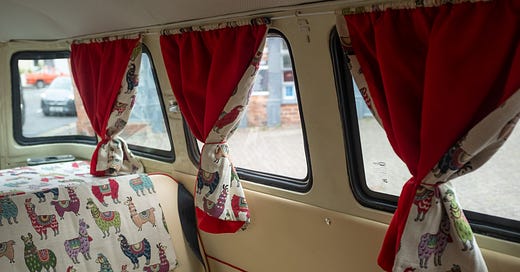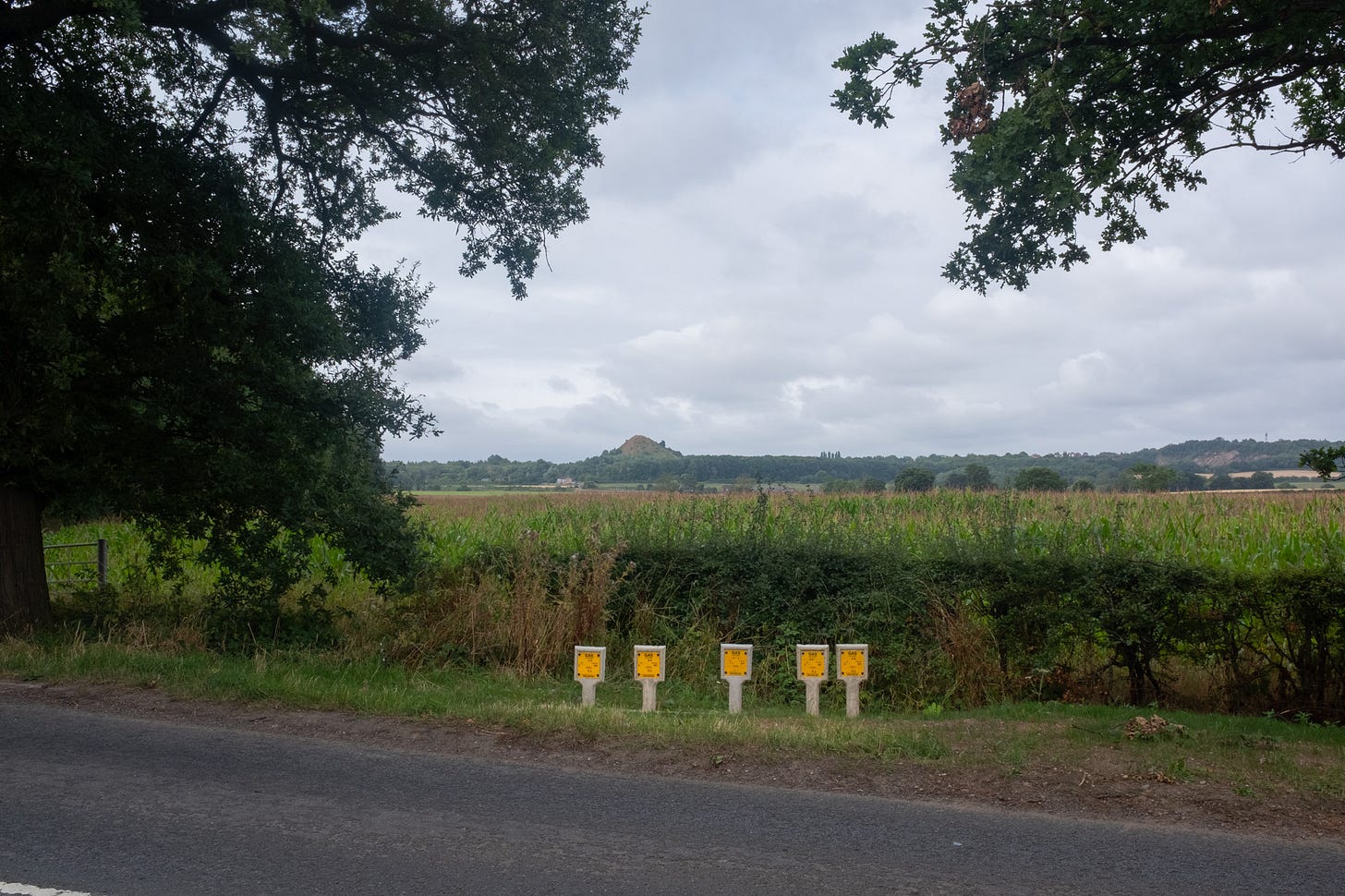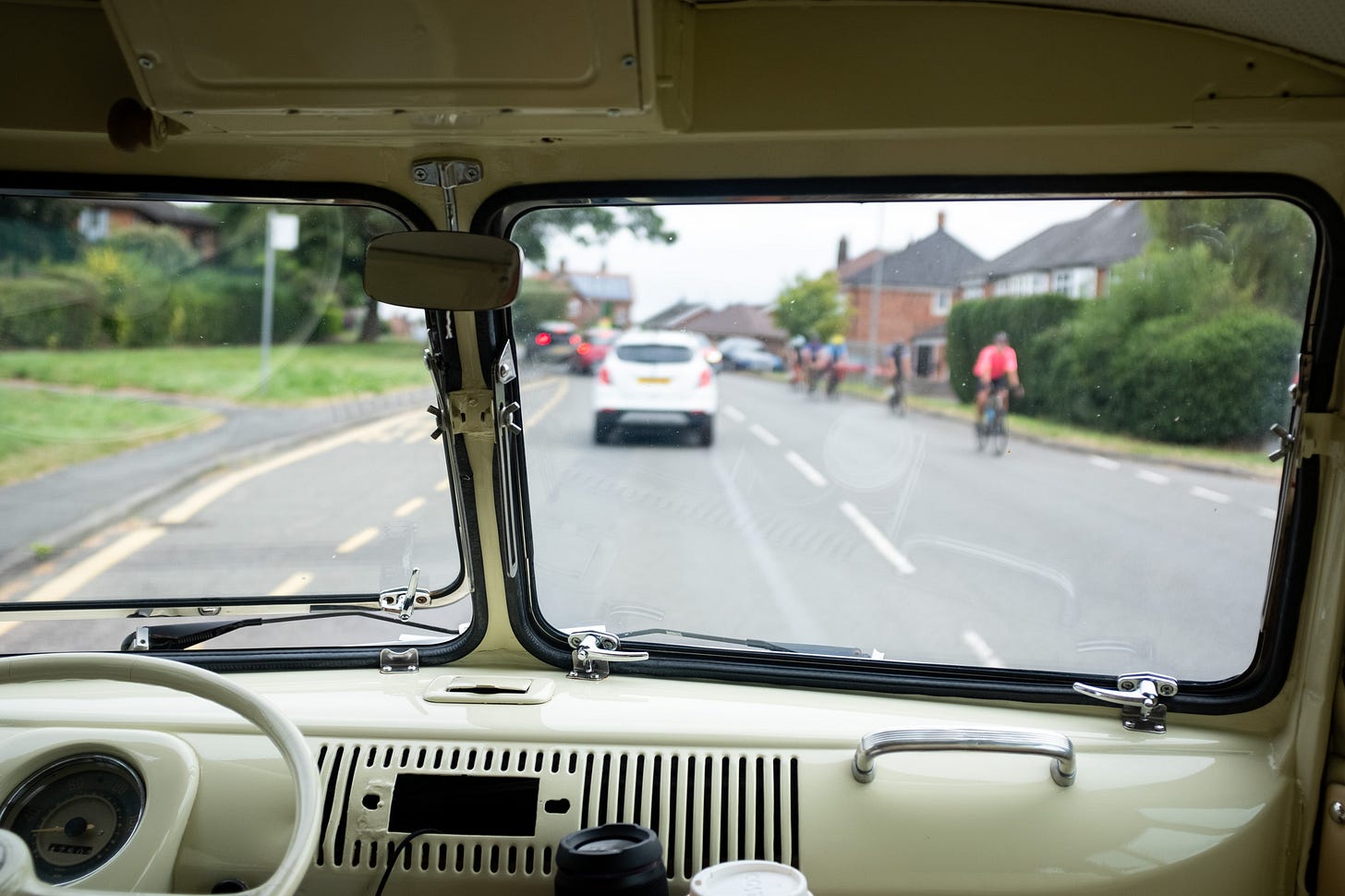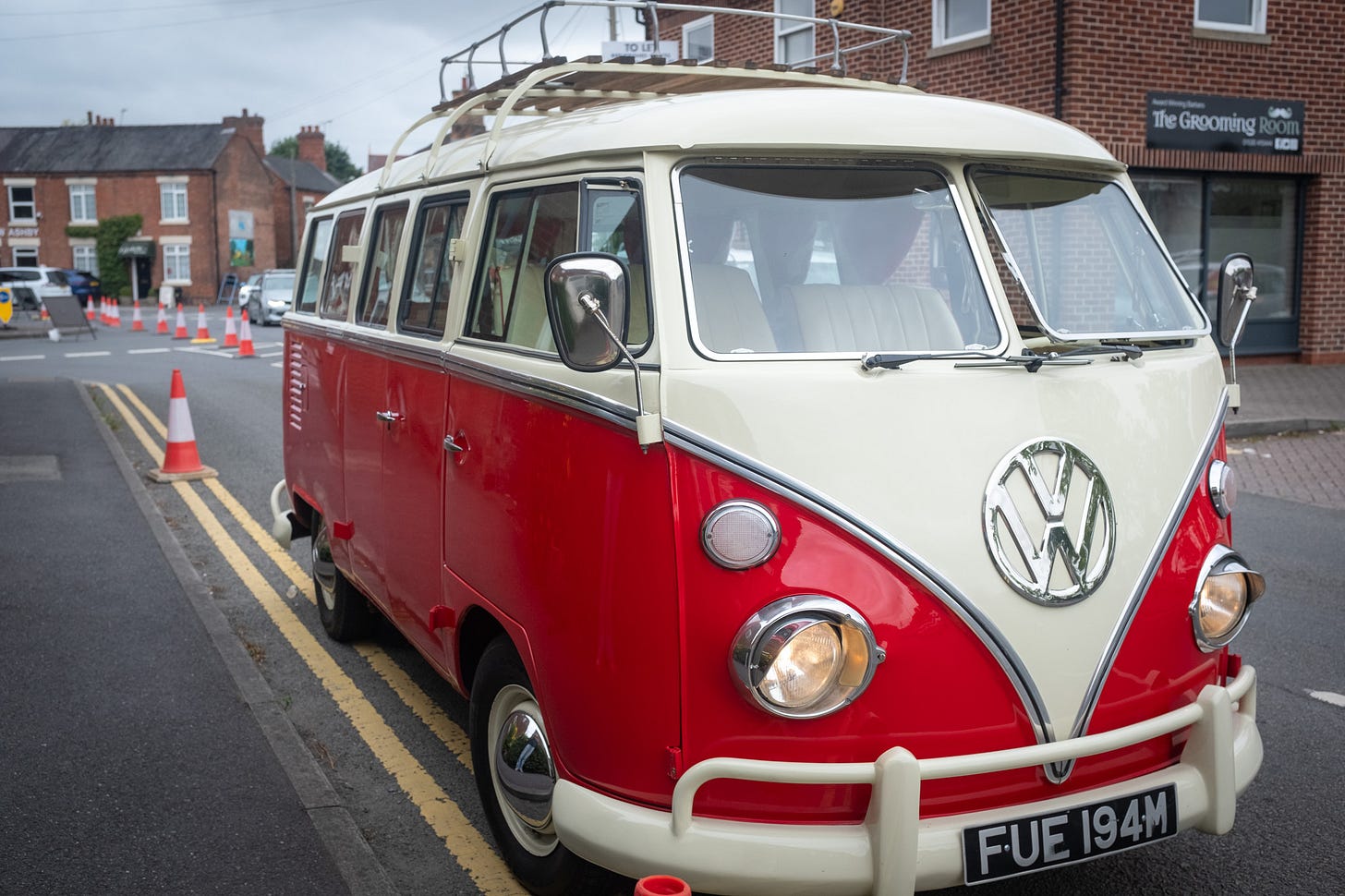Back in Britain from the warmer climes of Italy, it was good to be on the road again. Not least because I could guarantee I’d catch a lift over here. Eager, I paced to the edge of town. ‘Etone College’ it said in huge letters up the side of the glass-fronted school, a silver column, tipped on its end. This was not the Eton of Boris and the Princes though, I was in Nuneaton, a long way from Windsor. I suppose the school’s name was something of a pun.
Etone/eton/eaton all come from the Saxon word for river-town, and Nuneaton’s river trickled not far behind. Its tight curls and nearly-hidden path burrowed quietly around the warehouses and railway, the rundown redbrick old town and semi-detached suburbs, its course not as visible nor navigable as the nearby Coventry Canal, its artificial cousin.
I had considered heading to the southern edge of town for the sole reason that I could visit the childhood home of George Eliot. Right in the running for Britain’s greatest novelist, she lived there for 21 years. I had been a little surprised to discover the house is now a Beefeater restaurant. Perhaps it says something about the country today that in 2015 her later home in Chelsea was bought by an American billionaire for £17 million. Either way, tempted though I was by a Surf and Turf Combo and Biscoff Sundae in the rooms where the seeds of Middlemarch were sewn, I continued north instead.
I hoped to thumb towards Derbyshire and the Peak District so followed the footpath out to the A5. As I neared it, I noticed a bench half shrouded by hazel, wedged against a redbrick, graffitied wall.
In loving memory of Boudica, Queen of the Iceni, who died near Watling Street AD62.
It was an odd sight. The scene couldn’t be further from the fierce Celtic queen who burned Londinium and Colchester and whose rebellions briefly shook the mighty grip of Rome. I wondered who had lovingly erected it. Heroines are strangely remembered in Nuneaton.
I reached the main road. It was not a good place to hitchhike. With barely a verge, the lorries howled along it and pressed me, like the bench, into the hazel hedge. I turned back to try another place.
In a better spot on a different road, I didn’t wait 10 minutes. A VW camper clunked into the lay-by’s tiny craters. It was a shining cherry red with cream trimmings, split windscreen and a left-hand drive. 1960s. It was beautiful and I said so as I shook hands with its driver, Mark. He said it was rare, only 12 in the club.
I climbed into the back and placed my bag carefully on the cherry red carpet. The seats were sewn together in long bands of smooth cream leather. Throws printed with prancing llamas dressed them neatly and matched the curtains. They swayed in time as we clunked out of the potholes, onto the road.
Mark had lived in London for 30 years and moved up here to retire. Nuneaton had changed a fair bit since he arrived, he told me. The high street had disappeared for one. Local shops turned to chains owned by conglomerates—like the Beefeater—or just closed for good. The brickyards, hosiery and garment factories that had drawn people to the area were gone too; engineering firms arrived after the war but have since relocated or closed, and the quarries scrape a fraction of their former dig. Coal, of course, is no longer mined either.
Mark had been in the Met Police for 25 years. He told me about it as I twisted on the middle bench to face the front. It had been an interesting career and he’d witnessed plenty. Once he was blown off his feet by a racist nutter who’d made a bomb out of chemicals and tape and wrapped nails around them. He was 50 meters from the blast and was mercifully unhurt. Mark was there for the Brixton riots too. “How was that?” I asked. He puffed his cheeks, “Scary…”
The race riots had vomited onto the streets not long before and we spoke about them too, how they’d sent a chill down the country’s spine. Mark, a child of immigrants, saw both sides of the immigration question though naturally thought the violence was abhorrent. “They’re human beings,” he said.
We discussed how fortunate it was that the police don’t have guns over here. I learnt that on two or three occasions the force balloted on the issue but voted each time against carrying. After the 7/7 bombings in 2005, they came closest. “If they had gone on any longer they’d have armed us,” Mark said. “Scotland Yard has 30,000 Gloks.” In the end, the officers didn’t want the responsibility. It would be a very different country if they decided they did.
Since retiring, Mark had kept busy. He’d written three books, one of them published about his trip to Poland. He ran there from Trafalgar Square. 1200 miles in 30 days. “It only sold 5000 copies,” he said modestly. I replied that that was a lot.
We crossed over the A5, the ancient Watling Street, left to Wales, right to London, Dover and beyond. Through the square windows and swaying llamas, I could see a slag heap on the horizon, a neat mound like a bump on the head.
Mark said he rowed to Ukraine once. Not by sea, on the roads. He modified a Topper sailing boat, adding wheels and gears that connected to a rowing machine. Then he rowed all the way there. Another time he made the same journey but on a rocking horse. He fitted wheels on it, wore a suit of armour and pushed all the way. It took eight weeks.
Or perhaps he was having me on…
Either way, I enjoyed our chat and enjoyed riding in a vintage VW camper even more. We pulled up in the next town and I said bye to Mark and bye to all the llamas. As a light drizzle began to fall, made my way on towards the Peaks.
Have you got a good hitchhiking story? Get in touch or leave a comment! It would be great to hear from you.









Unforgettable images of a Topper on wheels powered by a rowing machine and an armour-clad man pushing a rocking horse... Hardly matters whether these were real or made up - they have an independent existence now!
“Its course not as visible nor navigable as the nearby Coventry Canal, its artificial cousin.” Nice.